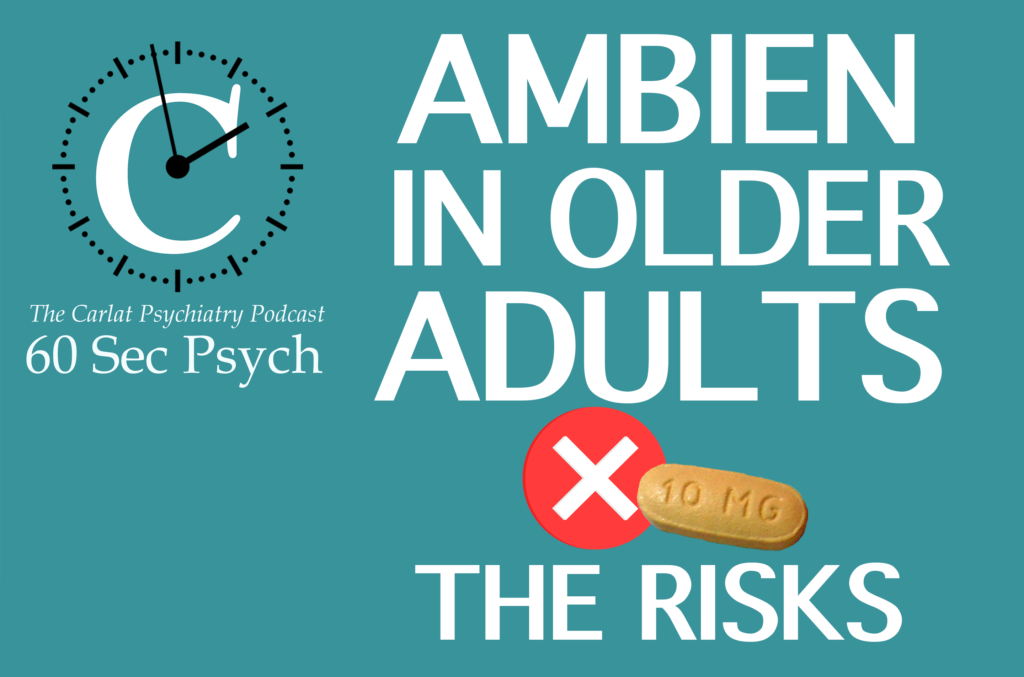1 out of 3 zolpidem ─ Ambien ─ tablets are dispensed to older adults, but how safe and effective is it in the elderly? This review by Flavio Machado and colleagues pulled together 32 studies – half of which were randomized placebo-controlled trials ─ to look for answers. Study referenced: Machado FV, Louzada LL, Cross NE, Camargos EF, Dang-Vu TT, Nóbrega OT. More than a quarter century of the most prescribed sleeping pill: Systematic review of zolpidem use by older adults. Exp Gerontol. 2020;110962. [Link]
Published On: 6/12/2020
Duration: 1 minute, 57 seconds
Transcript:
- Reports of addiction to zolpidem are scarce and limited to case reports, though rates of misuse are higher in older men with depression (8%)
- The risk of fractures is greater on zolpidem – about 1.5-2 times greater
- Half the studies found elevated rates of next-day cognitive and balance problems; but half did not
- And the controversial risks: stroke, cancer and dementia. Those raised flags in epidemiologic studies, but those type of studies are not controlled
The bottom line: Ambien is more potent in the elderly; both its risks and its benefits. Use low dosing – like 5mg. Although this review didn’t find major problems, it’s based on short-term studies, and insomnia is usually a long term condition. The most encouraging finding is that the benefits of zolpidem were detectable up to 6 months after it was stopped. We need to change patient expectations to see sleep meds as a short term patch, and behavioral therapies as a long-term solution. For my own patients I have a visual guide to those behavioral steps at moodtreatmentcenter.com/sleep.


_-The-Breakthrough-Antipsychotic-That-Could-Change-Everything.jpg?1729528747)



